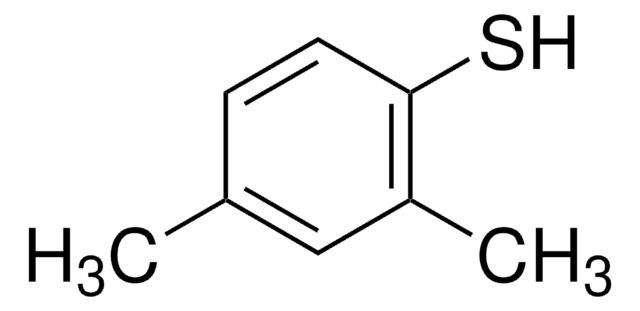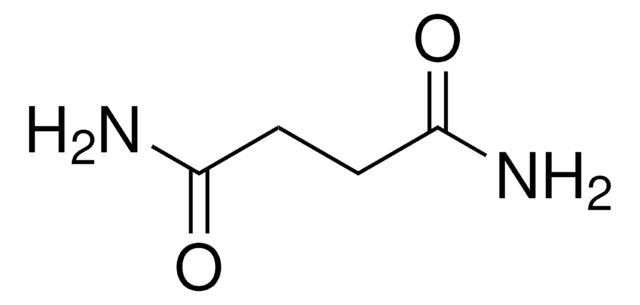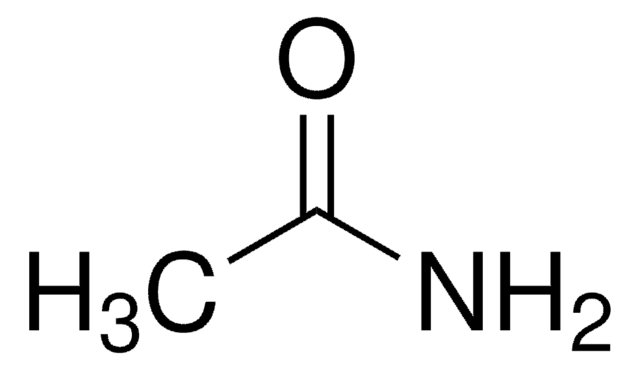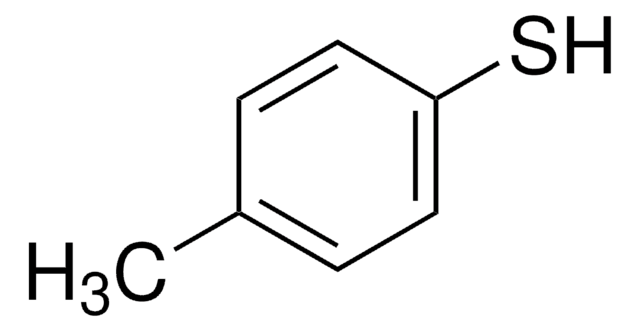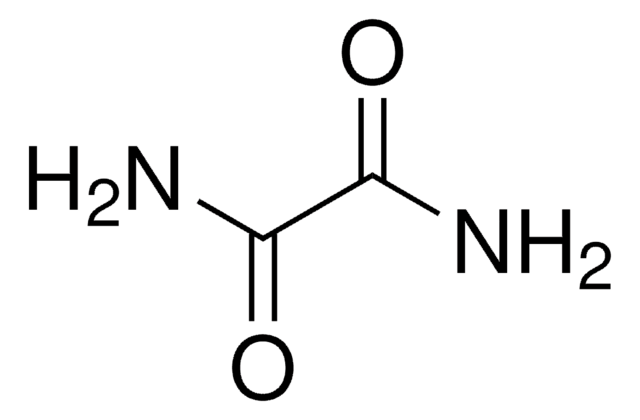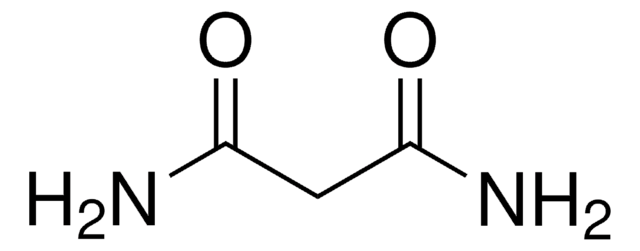All Photos(2)
About This Item
Linear Formula:
H2NCO(CH2)4CONH2
CAS Number:
Molecular Weight:
144.17
EC Number:
MDL number:
UNSPSC Code:
12352100
PubChem Substance ID:
NACRES:
NA.22
Recommended Products
Quality Level
assay
98%
form
solid
mp
226-229 °C (lit.)
solubility
formic acid: soluble 50 mg/mL, clear, colorless to faintly yellow
functional group
amide
SMILES string
NC(=O)CCCCC(N)=O
InChI
1S/C6H12N2O2/c7-5(9)3-1-2-4-6(8)10/h1-4H2,(H2,7,9)(H2,8,10)
InChI key
GVNWZKBFMFUVNX-UHFFFAOYSA-N
Application
Adipamide has been used in the preparation of bisimidates.
Storage Class
11 - Combustible Solids
wgk_germany
WGK 2
flash_point_f
Not applicable
flash_point_c
Not applicable
ppe
dust mask type N95 (US), Eyeshields, Gloves
Choose from one of the most recent versions:
Already Own This Product?
Find documentation for the products that you have recently purchased in the Document Library.
Xuejiang Wang et al.
Biomaterials, 23(24), 4787-4791 (2002-10-04)
In this study, acicular nano-hydroxyapatite (n-HA) was used to make a new biomimetic composite with polyamide (poly hexamethylene adipamide) by a unique technique. The physical and chemical characteristics of the composites were tested. It was found that these synthesized n-HA
Colin C Seaton et al.
Chemical communications (Cambridge, England), (8)(8), 880-881 (2002-07-19)
The crystal structure of a previously unknown triclinic polymorph of adipamide has been solved from laboratory X-ray powder diffraction data using a new direct space global optimisation method based on differential evolution.
D L Morris et al.
The Biochemical journal, 147(3), 593-603 (1975-06-01)
Triethyloxonium tetrafluoroborate was used to O-alkylate nylon-tube thus producing the imidate salt of the nylon which was further made to react with 1,6-diaminohexane. 2. Hexokinase (EC 2.7.1.1) and glucose 6-phosphate dehydrogenase (EC 1.1.1.49) were immobilized on the amino-substituted nylon tube
S J Kennel et al.
Toxicology and applied pharmacology, 82(2), 256-263 (1986-02-01)
A thyroglobulin conjugate of dioxin (thyroglobulin-2 adipamide, 3,7,8-trichlorodibenzo-p-dioxin) (TG-TCDD) was used to immunize BALB/c mice. Hybridomas were produced by cell fusion between immune spleen cells and mouse myelomas SP2/0, P3, or NS1. To screen the thousands of resultant cultures for
R W Fleischman et al.
Journal of environmental pathology and toxicology, 3(5-6), 149-170 (1980-06-01)
As a part of the National Cancer Institute's effort to screen environmental and occupational chemicals for chronic toxicity and carcinogenicity, the amides acetamide, hexanamide, adipamide, urea, and p-tolylurea were fed to male and female C57B1/6 mice and Fischer 344 rats
Our team of scientists has experience in all areas of research including Life Science, Material Science, Chemical Synthesis, Chromatography, Analytical and many others.
Contact Technical Service